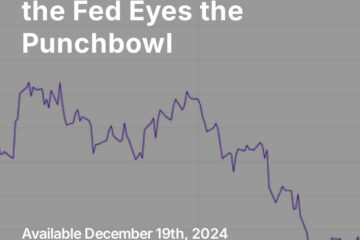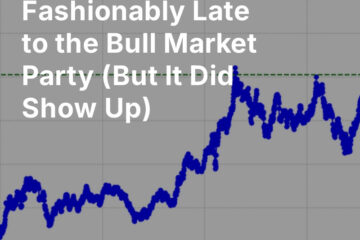The U.S.
As expected, the Federal Reserve made no change to its policy at its Wednesday announcement. Fed Chair Jerome Powell has been clear in the Fed’s accommodative stance. With the level of inflation that would be required to trigger a Fed rate increase nowhere to be found and unlikely to appear in the near term, market participants may be confident that the Fed has their back.
Regardless of the outcome of tariff negotiations — even if they are extended or raised — the U.S. economy is strong enough to withstand it. As we have reiterated in recent letters, a modest correction could be in the cards for the U.S. market at any time, and we would be buyers of that correction. We do not yet see the fundamental signs that would suggest caution and that more severe troubles are afoot.
In spite of the news static surrounding impeachment, Democrats and Republicans have reached an agreement to push the new U.S./Canada/Mexico accord forward in the new year — a plus for all three economies.
The Rest of the World
Elsewhere, other central banks are also accommodative. Japan continues to ease and the People’s Bank of China is also easing in response to economic pressure, albeit more modestly than it has in the past.
In Europe, the new EU presidency of Ursula van der Leyen may seek to support fiscal expansion through the use of green bonds, potentially doing an end-run around the more conservative EU finance ministries and national banks. Much of Europe’s industrial exports are from the automotive industry; lacking other disruptive tech, Europe may well turn to the global sea-change of batteries and electric vehicles in a bid to seize the new industrial high ground.
The U.K.
The U.K. goes to the polls today, on December 12. A majority for the Conservative Party under Boris Johnson will likely see his version of Brexit prevail and be approved early next year; in this event, we anticipate a rally for the British pound and for U.K. stocks. Should Parliament be without a clear majority, a correction in both stocks and currency is likely. Polls currently favor the Conservatives; the bookmakers’ odds, which are sometimes more trustworthy, currently suggest an 80% likelihood of an outright Conservative majority.
Gold
A recent Goldman Sachs analysis reiterated a strategic case for gold, noting:
“In our view, the case to diversify long-term bond holdings with gold is as strong as ever. Put simply, the lower bound in rates may limit the ability of bonds to appreciate in material risk-off environments. This creates room for alternative diversifiers like gold which tends to diverge from real rates when the latter stop acting as a good risk barometer…
“High political uncertainty due to continued trade tensions and the approaching U.S. elections should also be supportive gold in 2020. This uncertainty may be one of the reasons why we see evidence of a non-ETF vaulted gold build, as high net worth individuals may want to store gold outside the financial system.
“Finally, Modern Monetary Theory (MMT), which advocates larger money-financed fiscal deficits, has been getting more airtime. While our economists do not expect governments to adopt direct monetary financing, more widespread discussions of MMT could lead to greater demand for gold on debasement concerns.”
We find this reasoning cogent. As we have noted, there are near-term tactical challenges for gold, which more short-term gold holders should consider. Strategic gold holdings, however, continue to make good sense.
Thanks for listening; we welcome your calls and questions.



